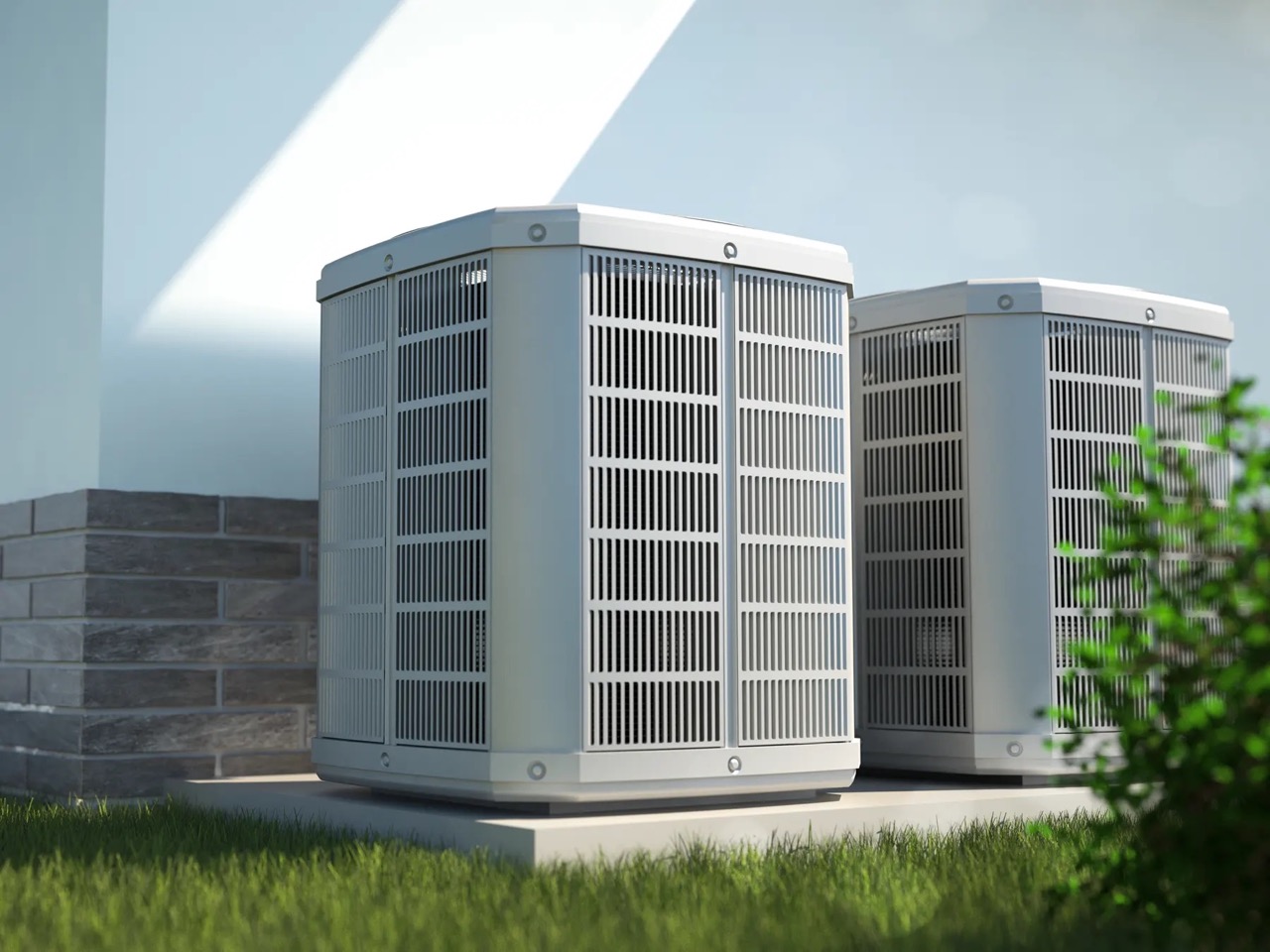

Articles
Why HVAC Is Important
Modified: January 9, 2024
Discover the importance of HVAC in our latest articles. Learn about the benefits of a well-maintained HVAC system and how it can enhance your comfort and energy efficiency.
(Many of the links in this article redirect to a specific reviewed product. Your purchase of these products through affiliate links helps to generate commission for Storables.com, at no extra cost. Learn more)
Introduction
HVAC, which stands for Heating, Ventilation, and Air Conditioning, is an essential component in modern buildings and homes. It plays a crucial role in creating a comfortable and healthy indoor environment. With the ever-changing climate conditions and the need for energy efficiency, having a well-functioning HVAC system has become more important than ever.
In this article, we will explore the reasons why HVAC is important and how it contributes to our daily lives. We will delve into the significance of proper heating, ventilation, and air conditioning, and the benefits of a well-maintained HVAC system. So, let’s dive in and discover why HVAC is a vital aspect of our living spaces.
Key Takeaways:
- Proper HVAC maintenance ensures comfort, energy efficiency, and healthy indoor air quality. It protects against extreme temperatures, reduces utility costs, and promotes overall well-being.
- Well-functioning HVAC systems prevent mold, enhance productivity, and extend equipment lifespan. They create a comfortable environment, reduce health risks, and contribute to a sustainable future.
Read more: Why Is HVAC Maintenance Important
Importance of Proper Heating
Proper heating is one of the fundamental aspects of a well-designed HVAC system. It ensures that our living spaces are kept warm and comfortable, especially during the colder months. Here are a few reasons why proper heating is important:
- Comfort: The primary purpose of heating is to provide comfort. A well-heated home or building allows residents and occupants to maintain a pleasant and cozy environment. This is particularly crucial for vulnerable individuals, such as the elderly, young children, or those with certain medical conditions, who are more sensitive to cold temperatures.
- Health: Proper heating helps to prevent the negative health effects of cold indoor temperatures. Exposure to cold environments can lead to hypothermia, increased risk of respiratory infections, and worsen conditions such as asthma or arthritis. A well-heated space promotes better overall health and well-being.
- Protection of Property: Cold temperatures can have adverse effects on our belongings. For example, extreme cold can cause water pipes to freeze and burst, leading to costly repairs. Proper heating helps to maintain a consistent temperature and prevent potential damage to the property.
Ensuring proper heating involves choosing the right heating system for the space, regularly maintaining and servicing the equipment, and implementing energy-efficient practices. It’s important to invest in high-quality heating systems that meet the specific needs of the building or home and ensure efficient heating while minimizing energy consumption and costs.
Importance of Proper Ventilation
Proper ventilation is a critical aspect of an effective HVAC system. It involves the circulation and exchange of indoor and outdoor air within a building, ensuring a continuous flow of fresh air. Here are a few reasons why proper ventilation is important:
- Indoor Air Quality: Proper ventilation helps to maintain good indoor air quality by removing pollutants, odors, and moisture from the air. It helps to dilute and expel contaminants, such as volatile organic compounds (VOCs), allergens, and airborne pathogens, improving the overall health and comfort of occupants.
- Moisture Control: Adequate ventilation helps to control excess moisture in the air, preventing the growth of mold, mildew, and dampness. High humidity levels can lead to structural damage, compromised air quality, and health issues. Proper ventilation helps to regulate humidity levels and create a drier and healthier indoor environment.
- Temperature Regulation: Ventilation plays a role in regulating indoor temperatures. It helps to distribute conditioned air throughout the space, ensuring even temperature distribution and avoiding hot or cold spots. Effective ventilation can also aid in reducing the reliance on air conditioning or heating systems, leading to energy savings.
Proper ventilation can be achieved through various methods, such as natural ventilation (through windows, doors, and vents) or mechanical ventilation systems (such as exhaust fans, air purifiers, and air exchangers). The specific approach depends on factors like building design, occupancy, and climate conditions.
Regular maintenance of ventilation systems is crucial to ensure their efficiency and effectiveness. It involves cleaning or replacing filters, inspecting ductwork for leaks, and ensuring proper airflow. Implementing proper ventilation practices contributes to a healthier, more comfortable, and energy-efficient indoor environment.
Importance of Proper Air Conditioning
Proper air conditioning is a vital component of a comprehensive HVAC system. It focuses on keeping indoor spaces cool and comfortable, especially during hot summer months. Here are a few reasons why proper air conditioning is important:
- Comfort: Air conditioning plays a significant role in maintaining a comfortable indoor environment, especially in regions with high temperatures. It helps to regulate and control the temperature, creating a pleasant and cool atmosphere for occupants. This is particularly important for workspaces, commercial buildings, and homes, where individuals spend a significant amount of time.
- Health and Productivity: Proper air conditioning improves indoor air quality by filtering out airborne particles and allergens. It helps to reduce humidity levels, preventing the growth of mold and mildew. This creates a healthier environment and reduces the risk of respiratory issues and allergies. Additionally, a cool and comfortable environment is known to enhance productivity, concentration, and mental well-being.
- Equipment and Electronics: Air conditioning helps to maintain optimal conditions for sensitive equipment and electronics, such as servers, computers, and appliances. Excessive heat can lead to equipment malfunction, reduced efficiency, and potential damage. Proper air conditioning ensures the longevity and proper functioning of these devices.
Proper air conditioning involves selecting the right cooling system for the space, ensuring regular maintenance and servicing, and optimizing energy efficiency. Energy-efficient cooling systems use less energy, reducing environmental impact and lowering utility bills.
It’s essential to properly size and install air conditioning units to match the cooling needs of the area. Oversized systems can lead to excessive energy consumption and inadequate moisture removal, while undersized units may struggle to maintain desired temperatures. Consulting HVAC professionals can help ensure proper installation and optimal performance of air conditioning systems.
Benefits of a Well-Functioning HVAC System
A well-functioning HVAC system provides numerous benefits that contribute to the overall comfort, health, and efficiency of a building or home. Here are some key advantages of maintaining a well-operating HVAC system:
- Energy Efficiency and Cost Savings: One of the significant benefits of a well-functioning HVAC system is increased energy efficiency. Regular maintenance, proper insulation, and the use of energy-saving technologies result in lower energy consumption and reduced utility bills. Energy-efficient systems also have a positive environmental impact by reducing greenhouse gas emissions.
- Improved Indoor Air Quality: A properly functioning HVAC system ensures good indoor air quality by constantly circulating and filtering the air. This helps to remove pollutants, allergens, and toxins, promoting healthier breathing and reducing the risk of respiratory problems. Clean and filtered air is particularly important for individuals with asthma, allergies, or other respiratory conditions.
- Comfort and Productivity: A well-maintained HVAC system provides consistent and optimal temperature control, creating a comfortable environment for occupants. This promotes higher productivity, better focus, and improved overall well-being. Whether it’s an office setting, a retail space, or a residence, a comfortable environment enhances the occupant’s experience.
- Reduced Risk of Mold and Bacteria Growth: Adequate air conditioning and ventilation help to control humidity levels, preventing the growth of mold, mildew, and bacteria. Stagnant or excessive moisture can lead to the development of harmful microorganisms, which can compromise indoor air quality and pose health risks. A well-functioning HVAC system effectively manages moisture levels, reducing the risk of such growth.
- Extended Equipment Lifespan: Regular maintenance and care of HVAC equipment prolong their lifespan. By conducting routine inspections, cleaning, and servicing, potential issues can be identified and addressed early on, preventing major breakdowns and costly repairs. Well-maintained systems have a longer lifespan, saving you money in the long run.
Overall, a well-functioning HVAC system enhances the comfort, health, and efficiency of a building or home. Regular maintenance, proper servicing, and adherence to energy-saving practices are crucial in maximizing the benefits of an HVAC system and ensuring its optimal performance.
Regular maintenance of your HVAC system is crucial to ensure efficient operation and lower energy costs. Be sure to schedule annual inspections and cleanings to keep your system running smoothly.
Read more: Why Is Woodworking Important
Energy Efficiency and Cost Savings
Energy efficiency is a key consideration when it comes to HVAC systems. By optimizing energy usage, a well-designed and properly maintained HVAC system can provide significant cost savings and reduce the carbon footprint of a building or home. Here are some reasons why energy efficiency is important for HVAC systems:
- Lower Utility Bills: One of the primary advantages of an energy-efficient HVAC system is reduced energy consumption, resulting in lower utility bills. Energy-efficient systems utilize advanced technologies such as variable speed motors, programmable thermostats, and energy-efficient components, helping to optimize energy usage and minimize waste.
- Environmental Impact: Energy-efficient HVAC systems have a positive impact on the environment by reducing greenhouse gas emissions. By using less energy, these systems contribute to the overall goal of environmental sustainability and help combat climate change.
- Incentives and Rebates: Many governments and utility companies offer incentives and rebates for energy-efficient HVAC systems. These incentives can help offset the initial investment cost and encourage the adoption of energy-efficient technologies.
- Increased Equipment Lifespan: Energy-efficient HVAC systems are designed to run more efficiently, resulting in less wear and tear on the equipment. This can lead to a longer lifespan for the components, reducing the frequency of repairs and replacement costs.
- Optimized Performance: Energy-efficient HVAC systems are designed to deliver optimal performance. They are better equipped to handle varying loads and fluctuating temperatures, providing consistent and comfortable indoor conditions. This eliminates the need for excessive cooling or heating, resulting in energy savings.
- Smart and Programmable Features: Many energy-efficient HVAC systems come equipped with smart and programmable features that allow users to control and customize their settings. This includes programming temperature adjustments based on occupancy schedules, remote access control, and real-time monitoring of energy usage. These features empower users to manage their energy consumption effectively.
To maximize energy efficiency and cost savings, it is essential to perform regular maintenance on your HVAC system. This includes cleaning or replacing filters, inspecting ductwork for leaks, and scheduling professional tune-ups. By investing in energy-efficient HVAC systems and adopting energy-saving practices, you can enjoy significant long-term cost savings while reducing your environmental impact.
Improved Indoor Air Quality
Ensuring good indoor air quality is a critical aspect of a well-functioning HVAC system. Poor indoor air quality can have detrimental effects on health, comfort, and overall well-being. A properly designed and maintained HVAC system contributes to improved indoor air quality in the following ways:
- Filtration and Purification: HVAC systems are equipped with air filters that help to remove dust, allergens, and other pollutants from the air. High-quality filters can effectively capture particles and improve indoor air quality. Additionally, advanced HVAC systems may incorporate air purifiers or UV germicidal lights to further enhance air purification.
- Controlled Ventilation: HVAC systems with proper ventilation capabilities ensure a continuous exchange of fresh outdoor air with stale indoor air. This helps to eliminate indoor pollutants and improves the overall quality of the air inside the building or home. Controlled ventilation also prevents the buildup of excess moisture, reducing the risk of mold, mildew, and other contaminants.
- Humidity Control: HVAC systems play a crucial role in maintaining optimal humidity levels. Excessive humidity can promote the growth of mold and bacteria, leading to respiratory issues and poor indoor air quality. On the other hand, low humidity can cause dryness and discomfort. Properly functioning HVAC systems control humidity levels, creating a balanced and comfortable indoor environment.
- Reduced Allergens and Asthma Triggers: Effective filtration and purification of the air help to remove common allergens such as pollen, pet dander, and dust mites. This is particularly important for individuals with allergies or asthma, as cleaner indoor air reduces the risk of triggering allergic reactions or respiratory distress.
- Chemical and Odor Removal: HVAC systems can assist in eliminating chemical pollutants and unpleasant odors in indoor environments. This is achieved through the use of carbon filters or air purifiers that are effective in removing volatile organic compounds (VOCs) and other chemical contaminants.
To maintain improved indoor air quality, it is essential to regularly clean or change HVAC filters according to the manufacturer’s guidelines. Additionally, scheduling routine maintenance and inspections by HVAC professionals will ensure that all components of the system are functioning properly to promote optimal air quality.
Overall, a well-functioning HVAC system with adequate filtration, ventilation, and humidity control contributes to improved indoor air quality. This creates a healthier and more comfortable space for occupants, reducing the risk of respiratory issues and promoting overall well-being.
Comfort and Productivity
A well-functioning HVAC system not only provides comfort but also plays a significant role in enhancing productivity in both residential and commercial settings. Here are some reasons why comfort and productivity are closely linked to HVAC systems:
- Temperature Control: HVAC systems allow for precise control of indoor temperatures, ensuring a comfortable environment year-round. Maintaining an optimal temperature range helps individuals feel more at ease, leading to increased focus and productivity. Whether it’s a cool office during hot summer months or a cozy home during winter, temperature control contributes to overall comfort levels.
- Humidity Regulation: HVAC systems are designed to regulate indoor humidity levels. High humidity can make individuals feel sticky and uncomfortable, while low humidity can cause dryness and irritation. By maintaining balanced humidity levels, HVAC systems create a more pleasant environment that allows occupants to focus on their tasks without distractions.
- Air Quality: Properly maintained HVAC systems improve indoor air quality by filtering out pollutants, allergens, and odors. Clean and fresh air promotes a healthier environment, reducing the risk of respiratory issues and allergies. In turn, this contributes to improved comfort and allows individuals to work or relax without the discomfort of poor air quality.
- Noise Reduction: HVAC systems, particularly those equipped with advanced noise-reduction features, help minimize the intrusion of external noises, making the indoor environment more peaceful and conducive to concentration. Reduced noise levels create a quieter working or living environment, enhancing comfort and productivity.
- Consistent Temperatures: Properly functioning HVAC systems maintain consistent temperatures throughout a building or home. This eliminates temperature fluctuations, ensuring that occupants do not experience hot or cold spots. Consistent temperatures contribute to a more comfortable environment, allowing individuals to focus on their tasks and activities without distraction.
When occupants are comfortable, it positively impacts their productivity and overall well-being. Comfortable indoor conditions contribute to reduced stress levels and increased motivation, leading to higher efficiency and productivity in work and daily activities. This is particularly important in office settings, where employee comfort and satisfaction directly correlate to performance and job satisfaction.
Regular maintenance and servicing of HVAC systems are crucial to maintain optimal comfort levels. This includes cleaning air filters, checking ductwork for leaks, and ensuring proper airflow. When HVAC systems are well-maintained and functioning properly, they provide the comfort needed to enhance productivity and create a more pleasant indoor environment.
Reduced Risk of Mold and Bacteria Growth
An essential benefit of a well-functioning HVAC system is the reduced risk of mold and bacteria growth within a building or home. Mold and bacteria can have detrimental effects on both the structural integrity of the property and the health of its occupants. Here’s why a properly maintained HVAC system helps mitigate the risk of mold and bacteria growth:
- Humidity Control: HVAC systems play a crucial role in controlling humidity levels. Excessive moisture in the air can create a favorable environment for mold and bacteria to thrive. By regulating humidity, HVAC systems help prevent the conditions necessary for the growth of these harmful microorganisms.
- Proper Ventilation: Adequate ventilation is key to preventing the buildup of stagnant air and moisture, which can contribute to mold and bacteria growth. HVAC systems with proper ventilation capabilities remove stale indoor air and replace it with fresh outdoor air, reducing the possibility of excess moisture accumulation.
- Effective Filtration and Purification: HVAC systems are equipped with air filters that help remove particles and pollutants from the air. High-quality filters are effective in capturing mold spores, bacteria, dust, and other allergens, preventing them from circulating and settling in the environment.
- Regular Maintenance: Regular maintenance of HVAC systems is crucial in preventing mold and bacteria growth. This includes cleaning or replacing filters, inspecting and cleaning ductwork, and ensuring proper drainage. Routine inspections and servicing help identify and address potential issues before they escalate, preventing the conditions conducive to mold and bacteria proliferation.
- Avoiding Condensation: HVAC systems play a role in preventing condensation, which can contribute to mold growth. By properly cooling and dehumidifying the air, these systems help to minimize the formation of moisture on surfaces within the building, reducing the likelihood of mold development.
Mold and bacteria growth can pose serious risks to health, leading to respiratory issues, allergies, and other health problems. These microorganisms can also cause structural damage to buildings and homes. By maintaining a well-functioning HVAC system, the risk of mold and bacteria growth is significantly reduced, creating a healthier and safer indoor environment.
It’s important to note that in addition to a properly maintained HVAC system, proper ventilation practices, adequate insulation, and prompt mitigation of water leaks or moisture issues are also necessary for effective mold and bacteria prevention. Taking a proactive approach to indoor air quality and regular HVAC maintenance is essential in minimizing the risk of mold and bacteria growth and ensuring a healthier living or working environment.
Read more: Why Are Gutters Important
Conclusion
In conclusion, HVAC systems play a crucial role in creating a comfortable, healthy, and efficient indoor environment. Proper heating, ventilation, and air conditioning are essential components of a well-functioning HVAC system. Understanding and acknowledging the importance of HVAC systems can bring numerous benefits to both residential and commercial spaces.
Proper heating ensures comfort, protects against health issues related to cold temperatures, and prevents property damage. Adequate ventilation improves indoor air quality and reduces the risk of respiratory problems, mold growth, and excessive moisture. Effective air conditioning maintains cool temperatures during hot weather, enhancing comfort and productivity, and preserving the lifespan of equipment and electronics.
Having a well-functioning HVAC system brings forth several advantages. Energy efficiency and cost savings are achieved through reduced energy consumption and lower utility bills. Improved indoor air quality contributes to better health, fewer allergies, and overall well-being. Comfortable indoor conditions enhance productivity and concentration, benefiting both individuals and businesses. Additionally, a well-maintained HVAC system reduces the risk of mold and bacteria growth, ensuring a safer and healthier environment.
Regular maintenance and servicing are essential to maximize the benefits of HVAC systems. Cleaning or replacing filters, inspecting ductwork, and scheduling professional tune-ups are crucial in ensuring optimal performance and efficiency. Furthermore, investing in energy-efficient HVAC systems and adopting energy-saving practices promotes sustainability and minimizes environmental impact.
By understanding and prioritizing the importance of HVAC systems, we can create spaces that are not only comfortable and healthy but also cost-effective and environmentally friendly. Whether it’s a home, office, or commercial building, a well-designed and well-functioning HVAC system is a valuable asset that enhances our quality of life and contributes to a sustainable future.
Frequently Asked Questions about Why HVAC Is Important
Was this page helpful?
At Storables.com, we guarantee accurate and reliable information. Our content, validated by Expert Board Contributors, is crafted following stringent Editorial Policies. We're committed to providing you with well-researched, expert-backed insights for all your informational needs.
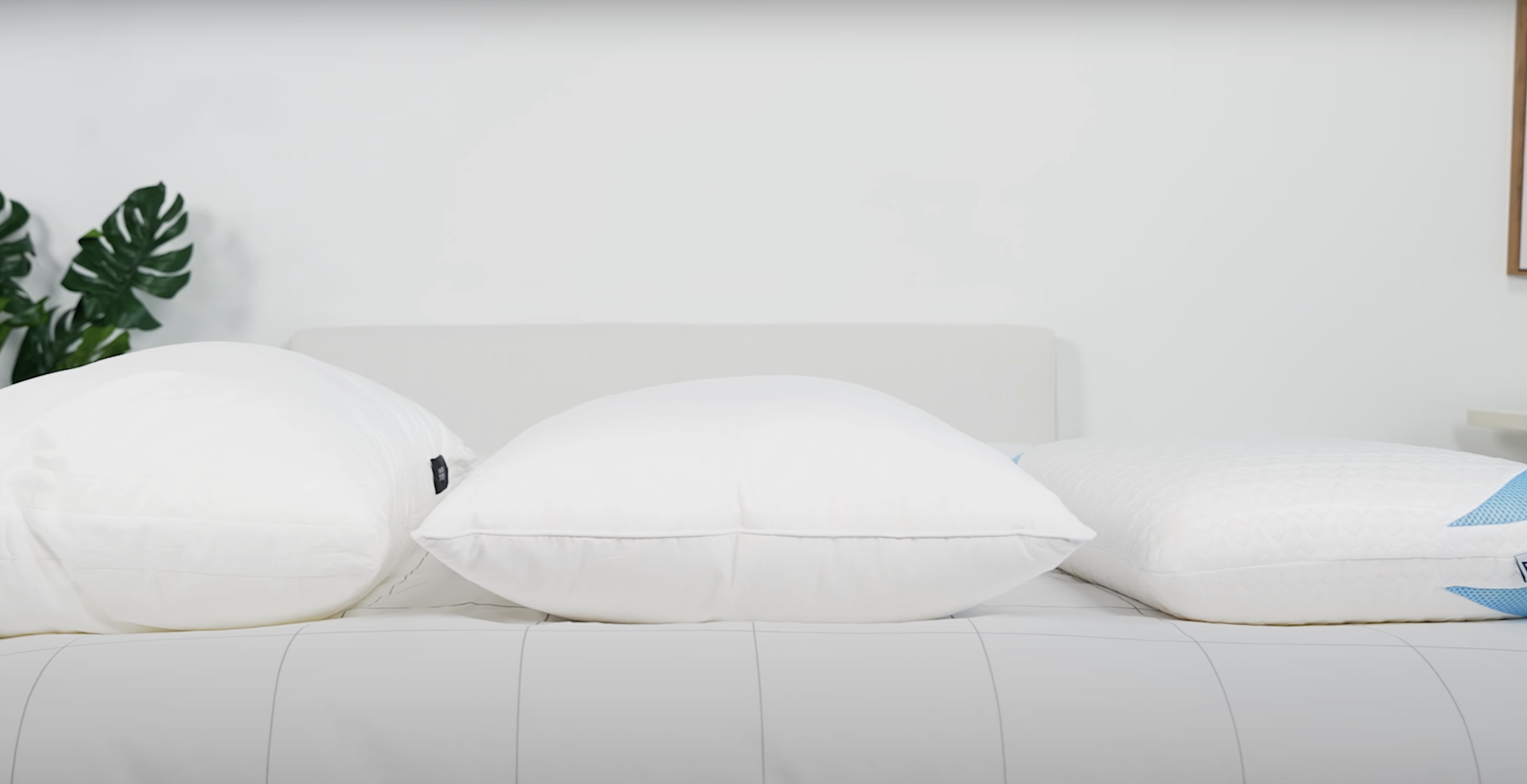
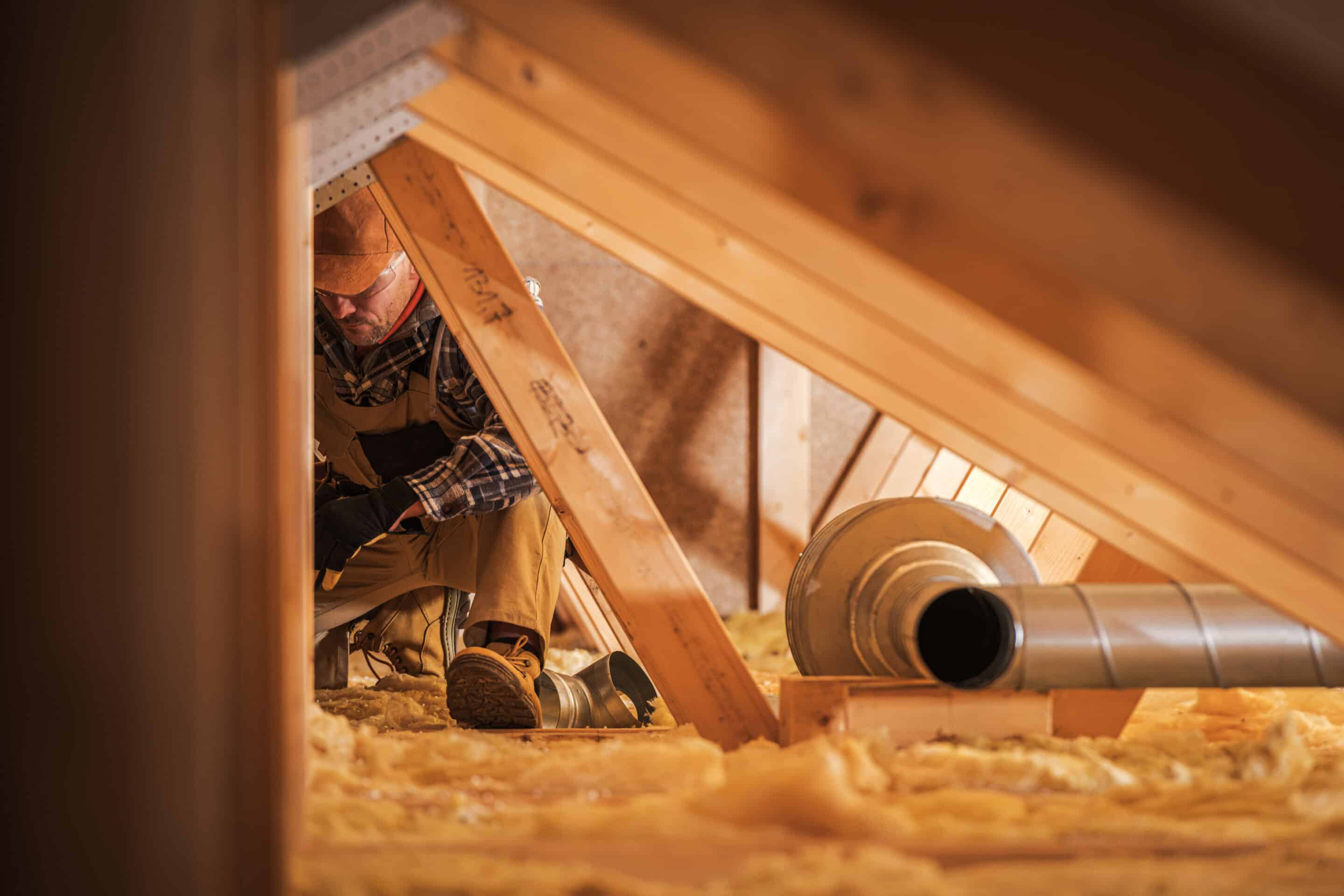
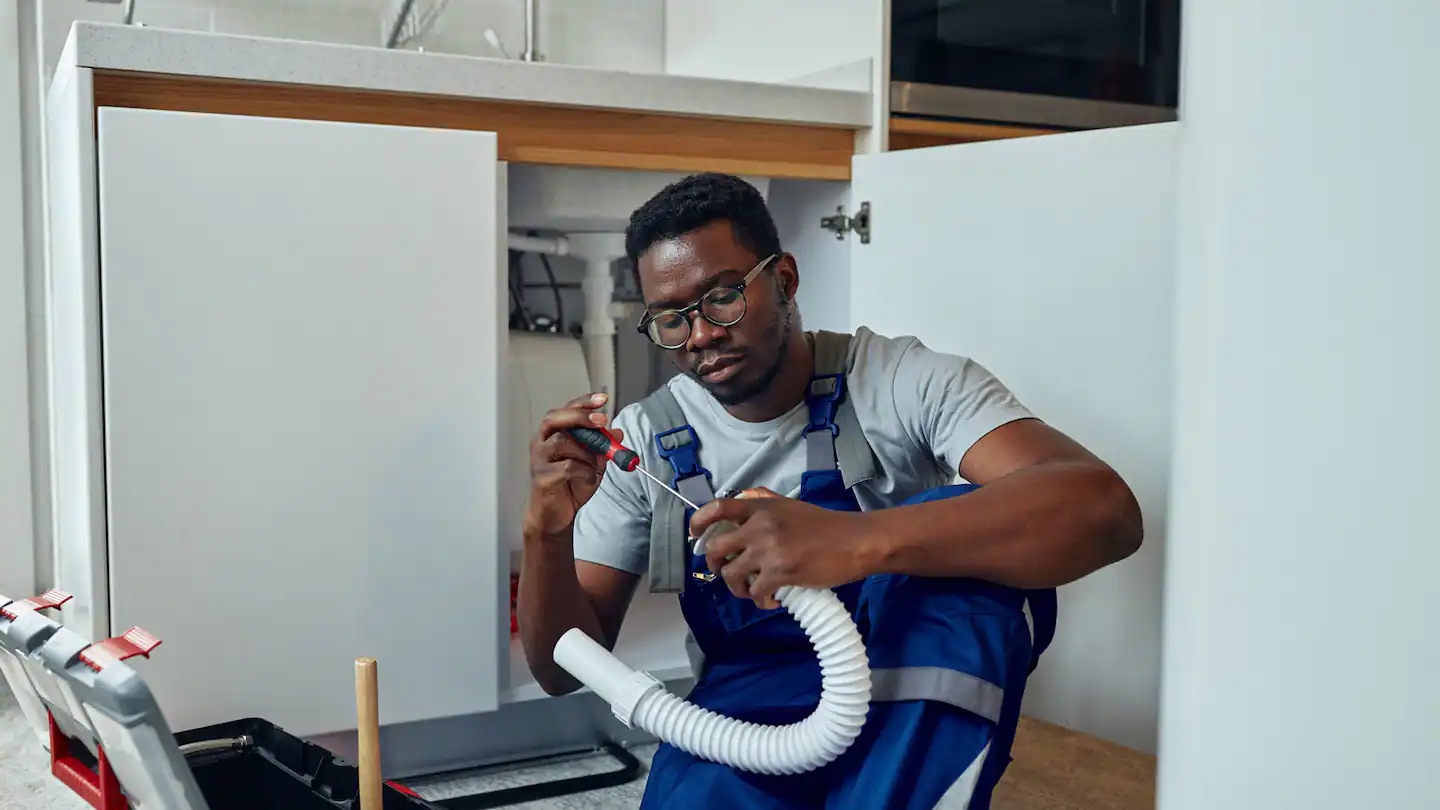

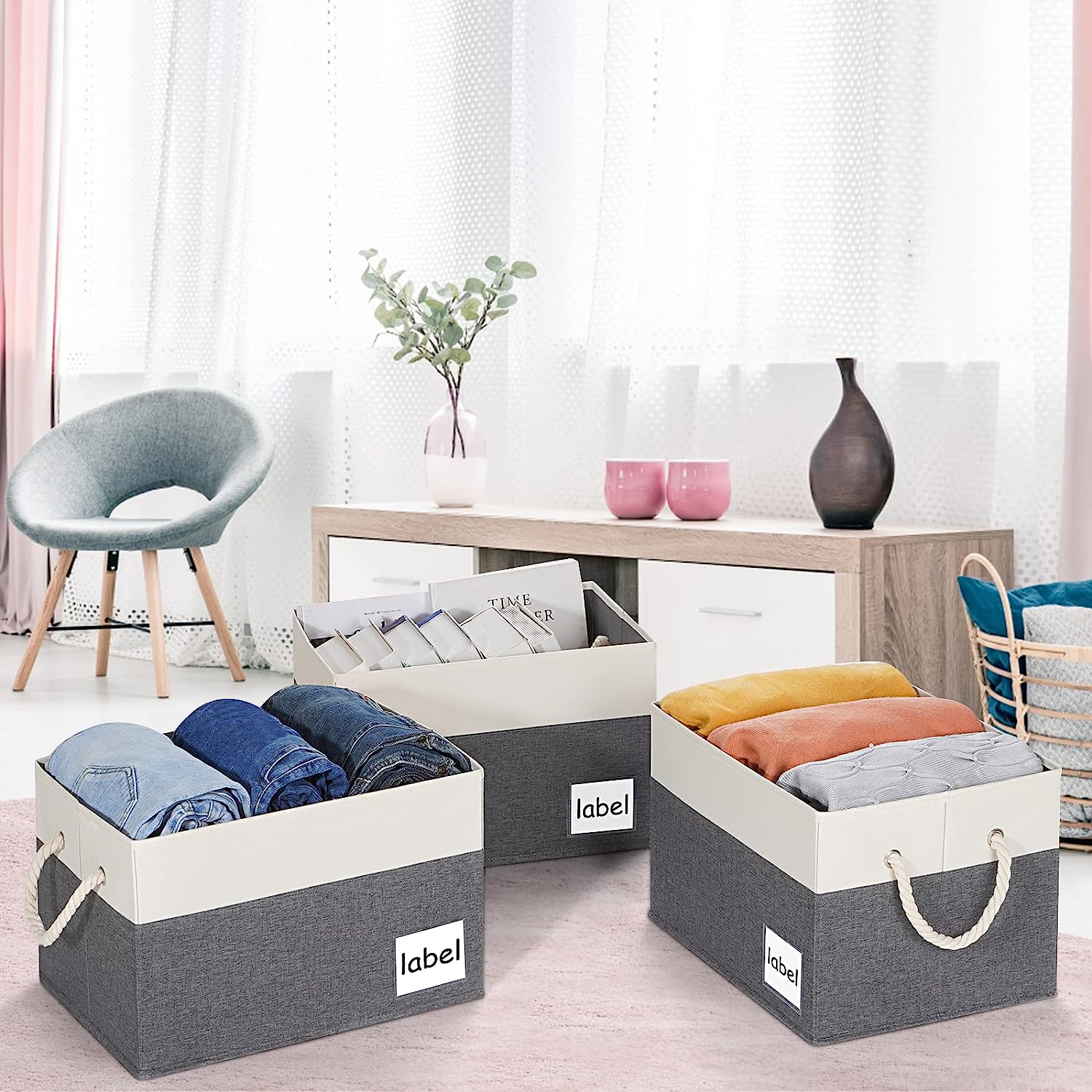

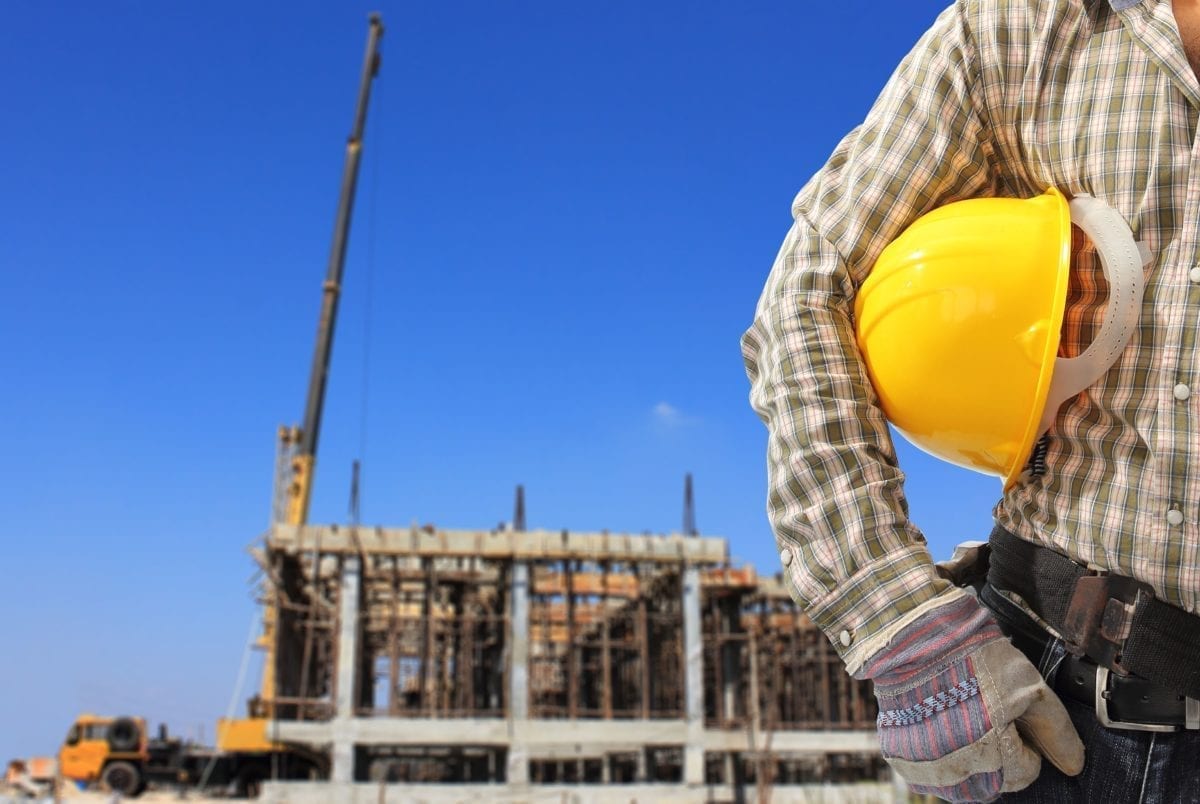
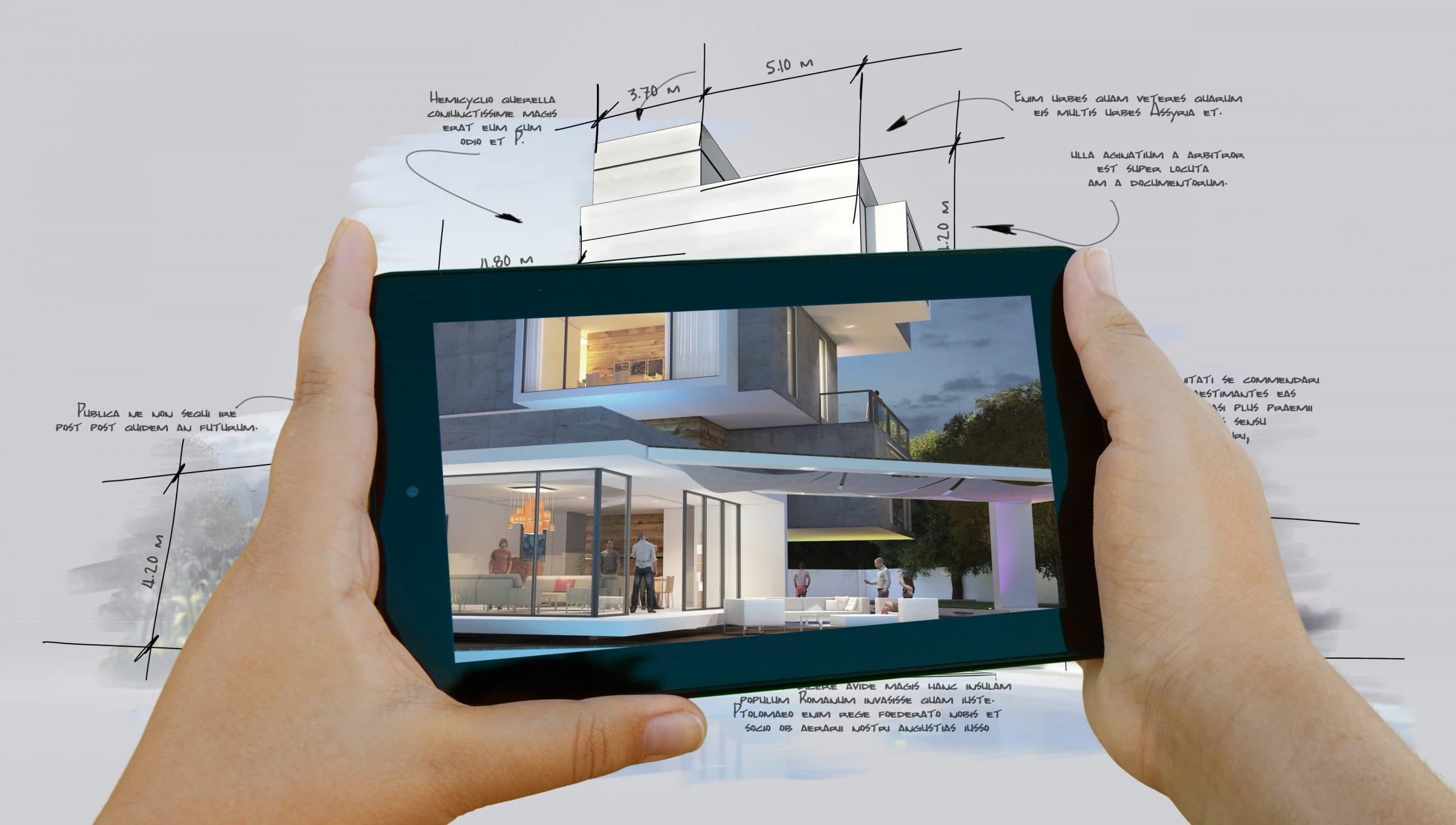



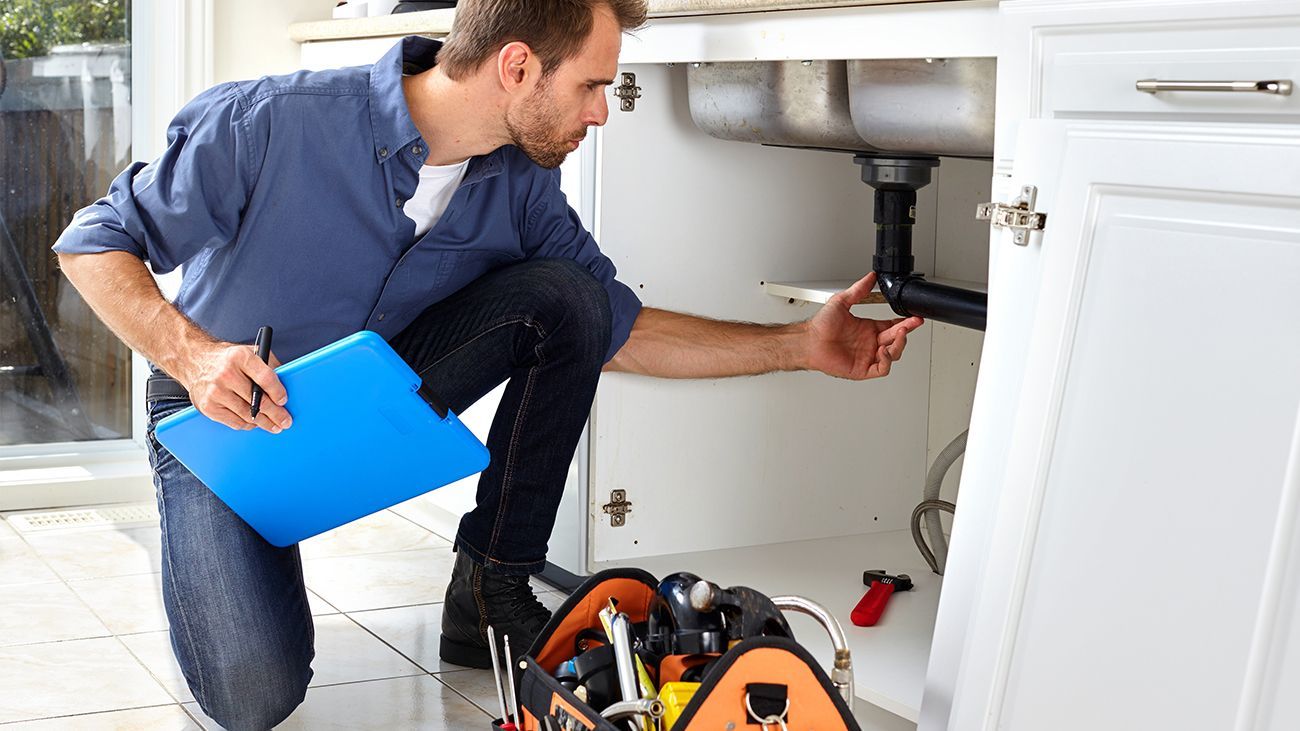
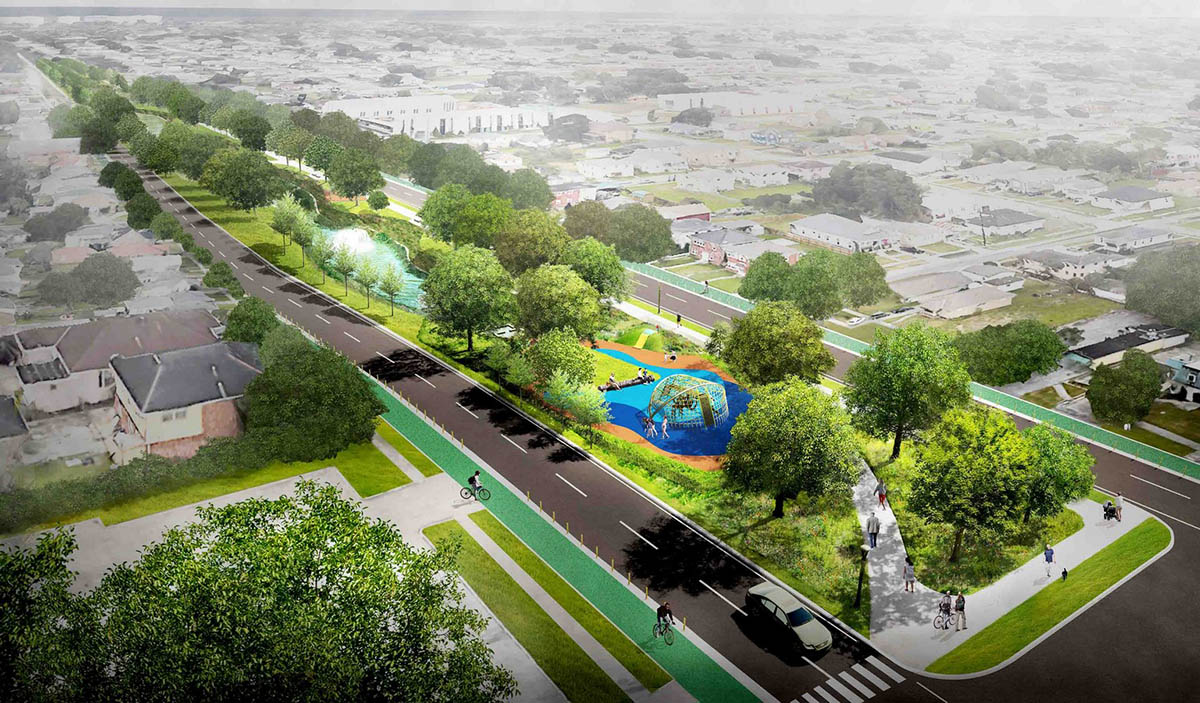

0 thoughts on “Why HVAC Is Important”